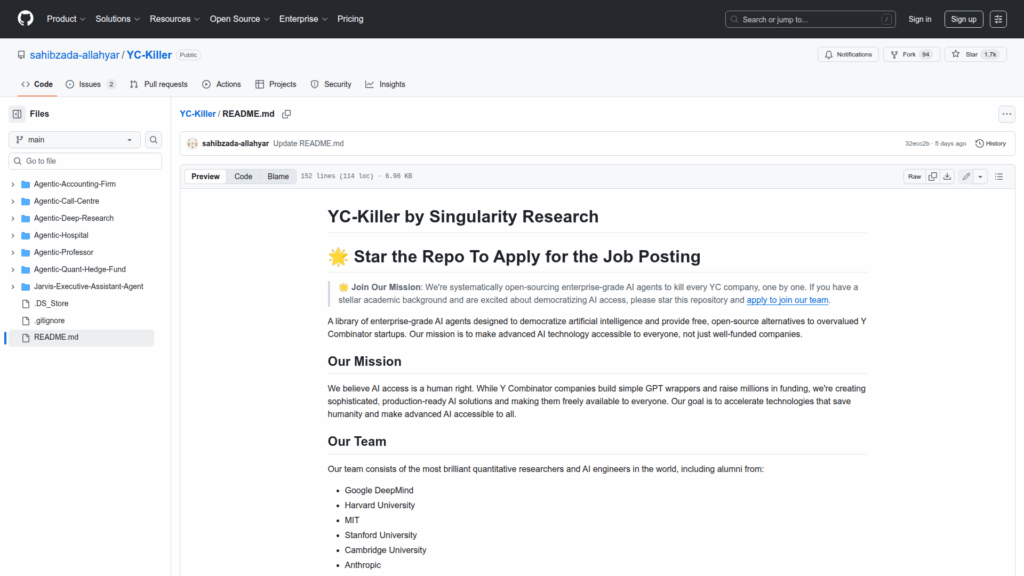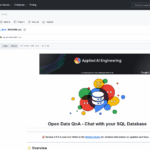YC-Killer
Basic Information
YC-Killer is an open source collection of enterprise-grade AI agent projects and templates intended to provide free alternatives to high-profile startup offerings. The repository catalogs multiple specialized agent applications such as research agents, a fully agentic quantitative hedge fund, a Jarvis-like executive assistant, an automated call center, an AI hospital, a tutoring professor agent, and an accounting firm, each maintained as its own sub-repository with dedicated setup instructions. The project aims to democratize access to advanced AI by publishing production-ready agent designs, deployment configurations, and operational practices so researchers, engineers, and organizations can run, study, and extend sophisticated multi-agent systems without large funding barriers. The README emphasizes modularity, real-time capabilities, containerized deployments, and community contributions.








